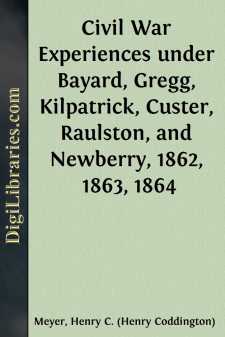Categories
- Antiques & Collectibles 13
- Architecture 36
- Art 48
- Bibles 22
- Biography & Autobiography 815
- Body, Mind & Spirit 144
- Business & Economics 28
- Children's Books 18
- Children's Fiction 14
- Computers 4
- Cooking 94
- Crafts & Hobbies 4
- Drama 346
- Education 58
- Family & Relationships 59
- Fiction 11829
- Games 19
- Gardening 17
- Health & Fitness 34
- History 1378
- House & Home 1
- Humor 147
- Juvenile Fiction 1873
- Juvenile Nonfiction 202
- Language Arts & Disciplines 89
- Law 16
- Literary Collections 686
- Literary Criticism 179
- Mathematics 13
- Medical 41
- Music 40
- Nature 179
- Non-Classifiable 1768
- Performing Arts 7
- Periodicals 1453
- Philosophy 65
- Photography 2
- Poetry 896
- Political Science 203
- Psychology 44
- Reference 154
- Religion 515
- Science 126
- Self-Help 85
- Social Science 82
- Sports & Recreation 34
- Study Aids 3
- Technology & Engineering 59
- Transportation 23
- Travel 463
- True Crime 29
Our website is made possible by displaying online advertisements to our visitors.
Please consider supporting us by disabling your ad blocker.
Civil War Experiences under Bayard, Gregg, Kilpatrick, Custer, Raulston, and Newberry, 1862, 1863, 1864
Description:
Excerpt
CHAPTER I
On the day Fort Sumter surrendered I was seventeen years old, having been born April 14, 1844. Like other boys, I proposed enlisting, but my father refused consent; and at that time youths under eighteen years would not be accepted without the consent of parents. In July of the following year, when the news of McClellan's retreat on the Peninsula was published, I was satisfied that the Government would need more men, and having carefully considered the matter, and being then eighteen years of age, I decided to go without my father's consent. Seeing a newspaper item to the effect that Captain Mallory, of the Harris Light Cavalry, had arrived in New York, and proposed to enlist some men for that regiment, I called upon him at the Metropolitan Hotel and made known my desire. He informed me that his recruiting office was not then arranged, though he had engaged a room a little farther up Broadway, and his sergeant was preparing to open it. He seemed reluctant to take me, and talked to me as though I were too young to go, and as if I did not realize what I was about to undertake. I assured him that I had considered the matter well, and that I was physically strong; and that if he would not accept me I would try to enlist in Duryea's Zouaves, who were, at that time, enlisting men. He then told me to go up and see his sergeant and that he would come up later. I found the room, but the sergeant, however, had not yet unpacked the papers. On getting them opened he said he was unable to make them out, whereupon I asked him to let me examine them, and proceeded to make out my own enlistment papers, the sergeant watching me. While I was thus engaged, a man with his arm off came in. He had just that day been discharged from the hospital, and inquired what steps he should take to get a pension, having been attracted by the flag hanging out of the office window. I noticed the sergeant was particularly anxious to get him out of the room, evidently not considering him a desirable acquisition to facilitate recruiting. I explained to the man what he should do. The sergeant, when he saw me make out my enlistment papers, remarked, "They won't keep you long in the ranks, because they can get better work for you to do," or words to that effect. I did not then comprehend what he meant, but my subsequent experience explained it. I was then sent to the examining physician, examined, passed, and sworn in for three years' service.
That night I went to my home, at Dobb's Ferry, on the Hudson River, and reported what I had done, intending to leave for Washington the next morning, when I was promised transportation. This interview with my parents was quite unpleasant, as my father was very angry and my mother in great distress. At that time both my father and his friends regarded my action as worse than foolish and almost as bad as though I had done something disreputable. Indeed, as I was afterwards informed, one gentleman remarked, "Well, that is too bad; that boy has gone to the devil, too."
The following morning I bade my parents good-bye, feeling that if I were wounded or crippled I should not care to return home for them to take care of me....


